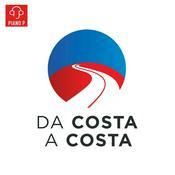1430 episodi
- Olympic sliding sports – bobsled, luge and skeleton – are known for their speed. Athletes chase medals down a track of ice at up to 80 or 90 mph. With this thrill comes the risk of “sled head.” Athletes use the term to explain the dizziness, nausea, exhaustion and even blackouts that can follow a brain-rattling run. Untreated, this can turn into concussions and subconcussions. But there’s still a lot more to learn about this condition. So today, host Emily Kwong speaks with two experts about the medical research into sled head – and how the sport would need to change to protect athletes’ brain health.
Check out more of NPR’s Olympics coverage.
Interested in more Olympic science? Email us your question at [email protected].
Listen to every episode of Short Wave sponsor-free and support our work at NPR by signing up for Short Wave+ at plus.npr.org/shortwave.
Learn more about sponsor message choices: podcastchoices.com/adchoices
NPR Privacy Policy - Autism has a long history of misinformation that continues to today. The Trump administration has perpetuated some of this misinformation in the last year. Among other things, officials have claimed certain groups of people don’t get the condition and that taking Tylenol while pregnant causes autism to later develop in children. Today, NPR Science Correspondent Jon Hamilton sets the record straight with host Emily Kwong on what scientists do and don’t know about autism.
If you liked this episode, check out our episodes on an Autism researcher’s take on Trump’s claims about Tylenol and a Fragile X treatment that may be on the horizon.
Interested in more science in the news? Email us your question at [email protected].
Listen to every episode of Short Wave sponsor-free and support our work at NPR by signing up for Short Wave+ at plus.npr.org/shortwave.
This episode was produced by Berly McCoy. It was edited by Rebecca Ramirez. Tyler Jones checked the facts. The audio engineer was Damian Herring.
Learn more about sponsor message choices: podcastchoices.com/adchoices
NPR Privacy Policy - PFAS make pans nonstick, clothes waterproof and furniture stain resistant. They're so ubiquitous, they're even inside of us. Now, researchers are looking for more insights in firefighters' blood.
Learn more about sponsor message choices: podcastchoices.com/adchoices
NPR Privacy Policy - On Jan. 28, 1986, NASA’s 25th space shuttle mission, Challenger, left the launchpad in Cape Canaveral, Florida. Seventy-three seconds into flight, Challenger exploded over the Atlantic Ocean as millions of people watched. All seven people on board died. Now, forty years later, journalist Adam Higginbotham chronicles what went wrong. His book Challenger: A True Story of Heroism and Disaster on the Edge of Space pieces together stories from key officials, engineers and the families of those killed in the explosion – and details how its legacy still haunts spaceflight today.
Consider checking out our episode speaking to an astronaut while she’s in space.
Have a scientific question you want us to answer? Email us at [email protected].
Listen to every episode of Short Wave sponsor-free and support our work at NPR by signing up for Short Wave+ at plus.npr.org/shortwave.
Listen to Short Wave on Spotify and Apple Podcasts.
Learn more about sponsor message choices: podcastchoices.com/adchoices
NPR Privacy Policy - This past weekend, Winter Storm Fern struck the States. Sleet, snow and ice battered Americans all the way from New Mexico to New York. Scientists predicted its arrival in mid-January, and in anticipation of the storm, more than 20 state governors issued emergency declarations. But how did scientists know so much, so early, about the approaching storm? NPR climate reporter Rebecca Hersher says it has to do with our weather models… and the data we put into them. Which begs the question: Will we continue to invest in them?
Interested in more science behind the weather? Check out our episodes on better storm prediction in the tropics and how the Santa Ana winds impact the fire season this time of year.
Have a question we haven’t covered? Email us at [email protected]. We’d love to consider it for a future episode!
Listen to every episode of Short Wave sponsor-free and support our work at NPR by signing up for Short Wave+ at plus.npr.org/shortwave.
This episode was produced by Hannah Chinn. It was edited by our showrunner Rebecca Ramirez. Tyler Jones and Rebecca Hersher checked the facts. The audio engineer was Robert Rodriguez.
News clips were from CBS Boston, Fox Weather, Fox 4 Dallas-Fort Worth, and PBS Newshour.
Learn more about sponsor message choices: podcastchoices.com/adchoices
NPR Privacy Policy
Altri podcast di Notizie
Podcast di tendenza in Notizie
Su Short Wave
New discoveries, everyday mysteries, and the science behind the headlines — in just under 15 minutes. It's science for everyone, using a lot of creativity and a little humor. Join hosts Emily Kwong and Regina Barber for science on a different wavelength.If you're hooked, try Short Wave Plus. Your subscription supports the show and unlocks a sponsor-free feed. Learn more at plus.npr.org/shortwave
Sito web del podcastAscolta Short Wave, Global News Podcast e molti altri podcast da tutto il mondo con l’applicazione di radio.it

Scarica l'app gratuita radio.it
- Salva le radio e i podcast favoriti
- Streaming via Wi-Fi o Bluetooth
- Supporta Carplay & Android Auto
- Molte altre funzioni dell'app
Scarica l'app gratuita radio.it
- Salva le radio e i podcast favoriti
- Streaming via Wi-Fi o Bluetooth
- Supporta Carplay & Android Auto
- Molte altre funzioni dell'app


Short Wave
Scansione il codice,
scarica l'app,
ascolta.
scarica l'app,
ascolta.


































